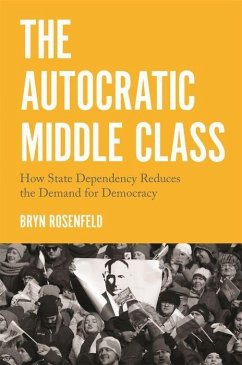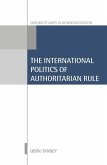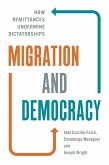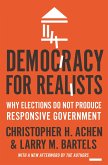"The conventional wisdom is that a growing middle class will give rise to democracy. Yet the middle classes of the developing world have grown at a remarkable pace over the past two decades, and much of this growth has taken place in countries that remain nondemocratic. Rosenfeld explains this phenomenon by showing how modern autocracies secure support from key middle-class constituencies. Drawing on original surveys, interviews, archival documents, and secondary sources collected from nine months in the field, she compares the experiences of recent post-communist countries, including Russia, the Ukraine, and Kazakhstan, to show that under autocracy, state efforts weaken support for democracy, especially among the middle class. When autocratic states engage extensively in their economies - by offering state employment, offering perks to those to those who are loyal, and threatening dismissal to those who are disloyal - the middle classes become dependent on the state for economic opportunities and career advancement, and, ultimately, do not support a shift toward democratization. Her argument explains why popular support for Ukraine's Orange Revolution unraveled or why Russians did not protest evidence of massive electoral fraud. The author's research questions the assumption that a rising share of educated, white-collar workers always makes the conditions for democracy more favorable, and why dependence on the state has such pernicious consequences for democratization"--








